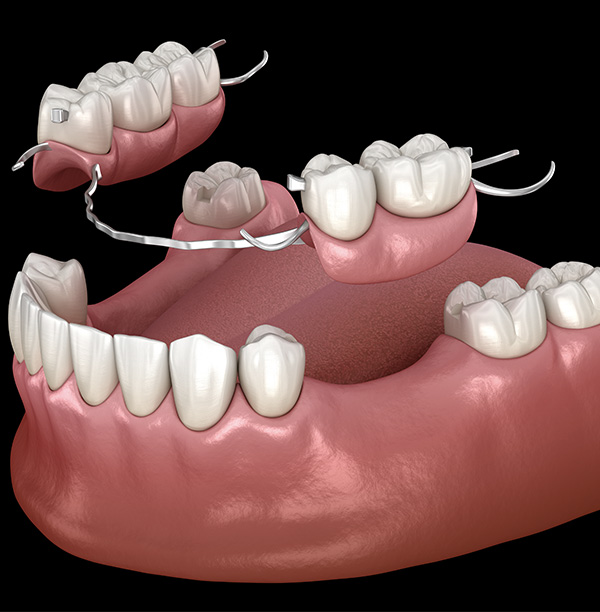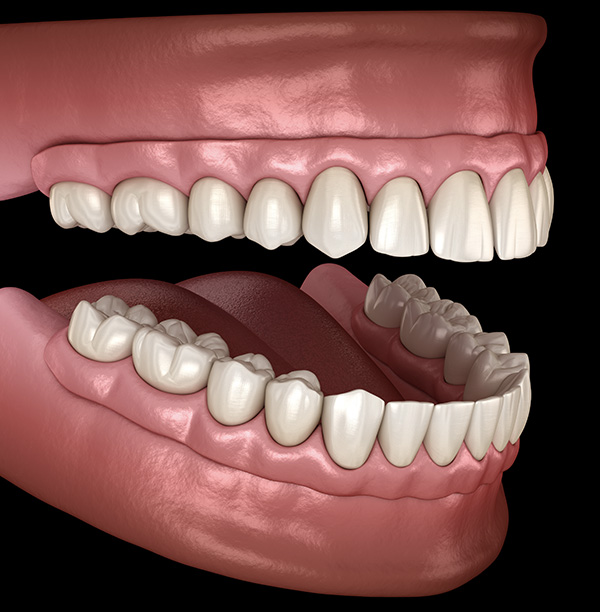Dentures are removable appliances designed to replace missing teeth and restore your smile. They can either be full, meaning they consist of replacement teeth for all your natural teeth, or partial, replacing only a few missing teeth. Dentures make it easier for patients to eat, speak and live their lives.
Dentures can fill out the appearance of your face and profile and are made to closely resemble your natural teeth.
Dentures may feel awkward in the mouth in the beginning, but in no time, you’ll grow used to them. As your facial muscles learn how to keep them in place, they may feel a bit loose, and you could experience some areas of minor irritation or discomfort. While your mouth is getting used to the dentures, you may also notice an increase in the flow of saliva. These problems will recede as your mouth gets used to having the dentures in place.
Once you receive your dentures, you will need to schedule follow-up appointments so the dentist can make sure the dentures are fitted properly and make any adjustments as needed.


